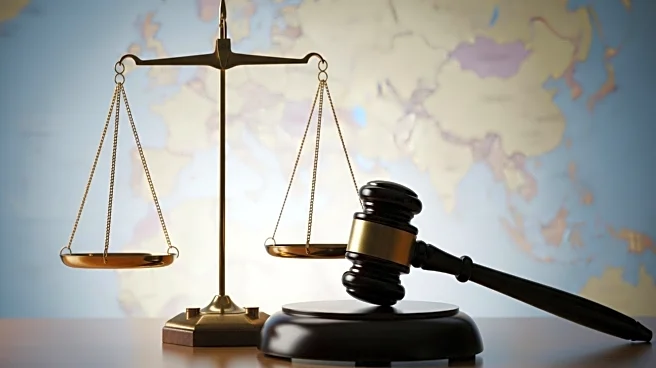What's Happening?
A federal immigration judge has ordered Mahmoud Khalil, a former Columbia University graduate student, to be deported to Algeria or Syria. Khalil, linked to pro-Palestinian protests, has been accused by the Trump administration of misrepresenting his background on immigration forms. The judge ruled that Khalil willfully misrepresented material facts to circumvent the immigration process. Khalil's legal team plans to appeal the decision, arguing procedural irregularities and retaliation for his activism. The case highlights tensions between immigration policy and free speech rights.
Why It's Important?
The deportation order against Mahmoud Khalil underscores the intersection of immigration policy and political activism in the United States. It raises concerns about the potential use of immigration laws to suppress dissent and the implications for international students involved in political movements. The case could influence future policies regarding the treatment of foreign nationals engaged in activism, impacting U.S. relations with countries like Algeria and Syria. Legal experts and civil rights advocates are closely monitoring the situation, which could have broader implications for immigration law and free speech protections.
What's Next?
Khalil's legal team has 30 days to appeal the deportation order to the Board of Immigration Appeals. If the appeal is unsuccessful, Khalil will lose his green card status and be required to leave the U.S. The case may prompt further legal challenges and public debate over the use of immigration laws in political contexts. Advocacy groups may increase pressure on the government to reconsider its stance on deporting activists, potentially influencing future policy decisions.










